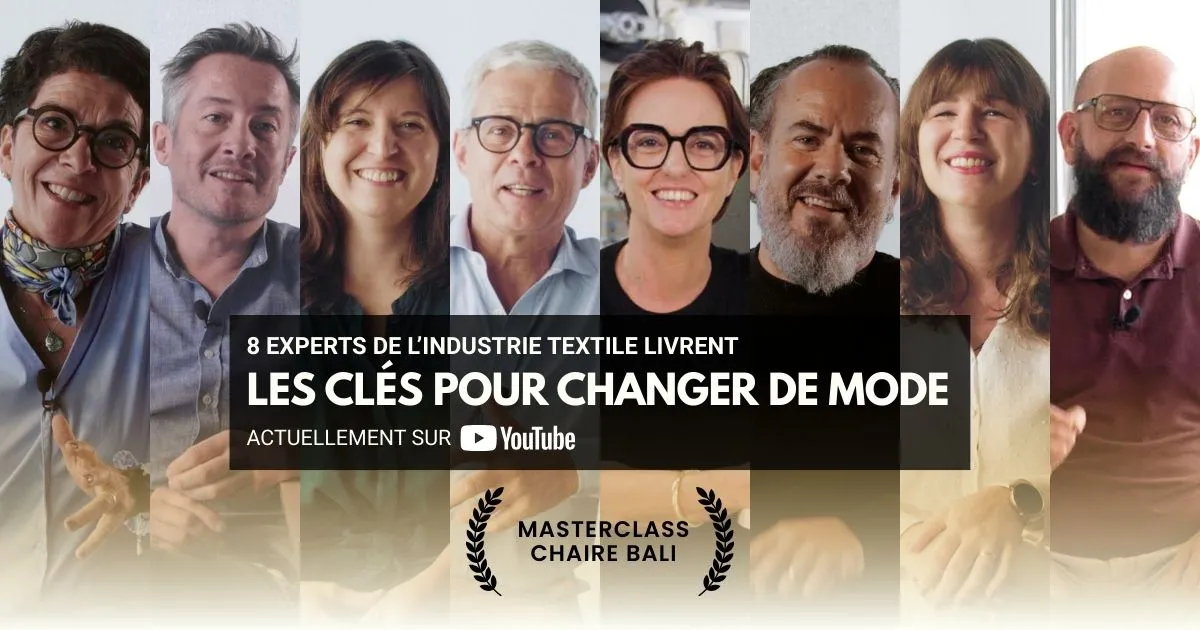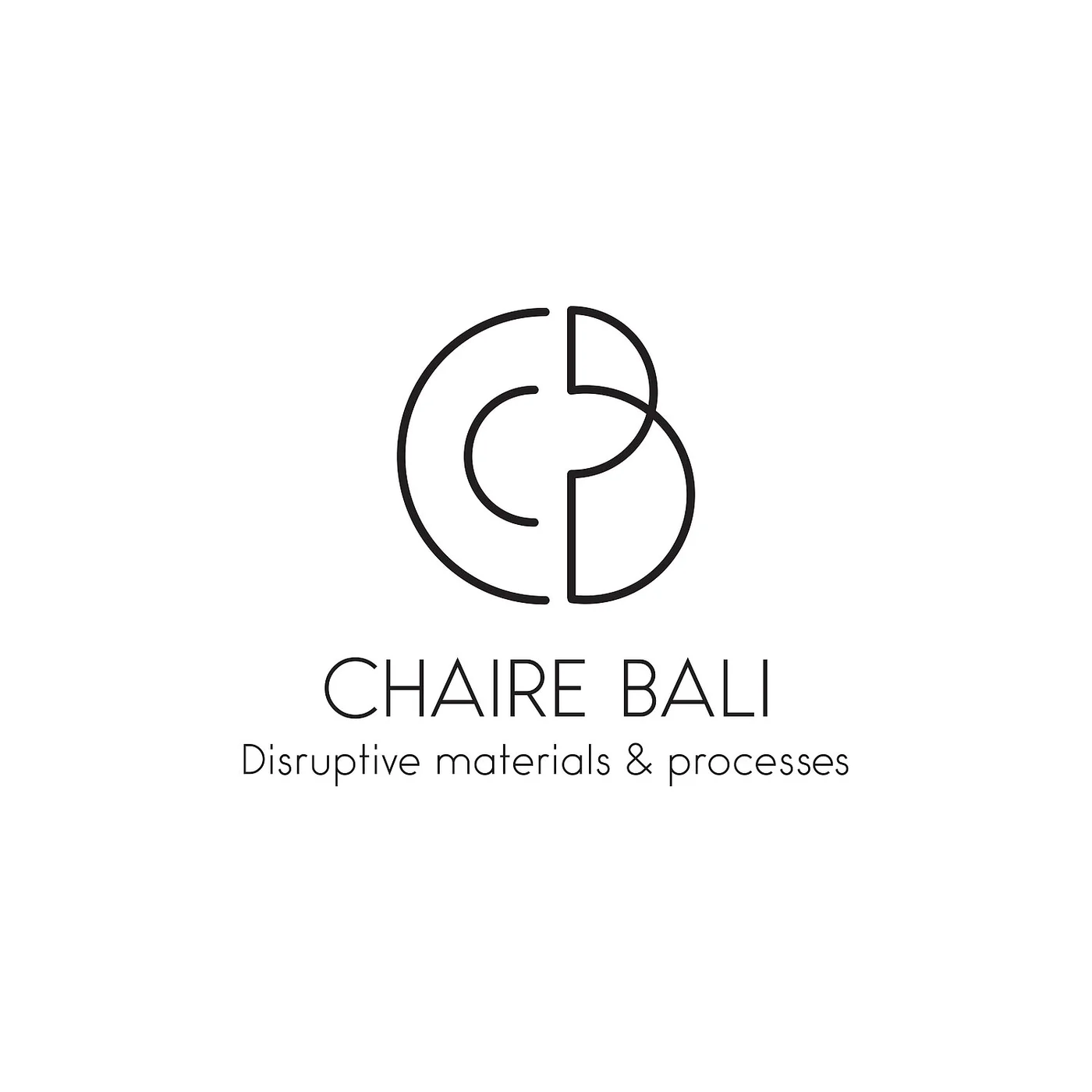BALI Chair
The BALI (Biarritz Active Lifestyle Industry) chair is a teaching and research programme on future technological innovations in the fashion and textile industry.
Founded in 2017, the BALI (Biarritz Active Lifestyle Industry) chair is a teaching and research programme bringing together fashion and textile players wishing to work together around the ESTIA engineering school on the industry's environmental, societal and economic transition.
The BALI Chair was born out of a diagnosis shared by various industrial and academic players in the innovation and fashion sector: new lifestyles and consumption patterns are raising new challenges to which tomorrow's industry must respond. They all share the desire to work together to develop the sector and anticipate the challenges facing their industries.
Our mission: to deploy circularity on an industrial scale
To develop and massively extend circular offers and business models on an industrial scale in the textile sector in order to increase its level of resilience, promote frugality and sobriety by looking at traceability, sustainability and the extension of uses for products and services, giving priority to repair, on-demand manufacturing and short distribution channels serving local areas.
Objective 1: Involve, enlist and support all stakeholders (consumers, manufacturers, brand departments, ecosystems, etc.) in circularity.
Objective 2: To instrument and develop the industrial capacities of the various circularity loops in order to accelerate its deployment and maximise its economic, environmental and social impacts.
The BALI Chair is working in three areas:
- SUSTAINABILITY | Deploying new solutions, technologies, means of transparency or products in order to successfully combine economic, environmental and social benefits.
- ENGAGEMENT | Involve, enrol and support all internal stakeholders (all brand departments and services) and external stakeholders (consumers, pre & post-consumer partners, media, etc.) in circularity.
- TRANSFORMATION | Moving from POC to industrial scale by supporting change in companies (in terms of business lines, organisation or technologies) & anticipating change.
The partners are Belharra (a digital services company), CETIA (the first innovation platform dedicated to the automated sorting and dismantling of end-of-life or unsold textiles and footwear), Décathlon (world leader in the design and sale of sporting goods) and the Eram Group (a French family-owned group specialising in footwear and clothing), Petit Bateau (French brand since 1893, recognised for the quality and durability of its products), Gebetex (collector-sorter throughout France, approved by the eco-organisation ECO TLC), ESMOD (Founded in 1841 in Paris, ESMOD is a school that has established itself over the years as a benchmark in the fashion world). With the support of the Région Nouvelle Aquitaine.
Notre Mission : Déployer industriellement la circularité
Développer et étendre massivement à l’échelle industrielle des offres et modèles d’affaires circulaires dans le secteur textile afin d’augmenter son niveau de résilience, favoriser la frugalité et la sobriété en se questionnant sur la traçabilité, la durabilité, l’extension des usages des produits et services, privilégier la réparation, la fabrication à la demande et les circuit-courts au service des territoires.
Objectif 1 : Impliquer, enrôler et accompagner toutes les partie-prenantes (consommateurs, fabriquant, départements des marques, écosystèmes…) dans la circularité.
Objectif 2 : Instrumenter et développer les capacités industrielles des différentes boucles de la circularité pour accélérer son déploiement et maximiser ses impacts économiques, environnementaux et sociaux.
La Chaire BALI travaille autour de trois axes de réflexion :
SOUTENABILITÉ | Déployer des nouvelles solutions, technologies, moyens de transparence ou produits afin de réussir à conjuguer bénéfices économiques, environnementaux et sociaux.
ENGAGEMENT | Impliquer, enrôler et accompagner toutes les parties prenantes internes (ensemble des services et départements des marques) et externes (consommateurs, partenaires pré & post-consumers, médias…) dans la circularité.
TRANSFORMATION | Passer du POC à l’échelle industrielle en accompagnant le changement dans les entreprises (au niveau des métiers, de l’organisation ou des technologies) & anticiper les mutations.
Visiter le site web de la Chaire BALI
Membres de la Chaire BALI:
- Académiques : ESTIA, ESMOD
- Industriels : Decathlon, Groupe ERAM, Petit Bateau, GEBETEX, e-SCM, CETIA
- Institutionnels : Région Nouvelle-Aquitaine
Année de création :
2017
Masterclass - Les clés pour changer de mode

Portée par l’ESTIA, la Chaire BALI propose la Masterclass « Les clés pour changer de mode », une série de trois épisodes consacrés aux leviers structurants de la transformation de l’industrie textile.
Cette Masterclass s’appuie sur des travaux de recherche appliquée et des retours d’expérience industriels pour éclairer les enjeux de traçabilité, d’éco-conception et de recyclage textile, et contribuer à la diffusion de connaissances utiles à l’ensemble de la filière.
Voir le teaser sur YouTube

Contact
Directeur scientifique :
Jérémy LEGARDEUR
Responsable animation :
Valentina NARDI
